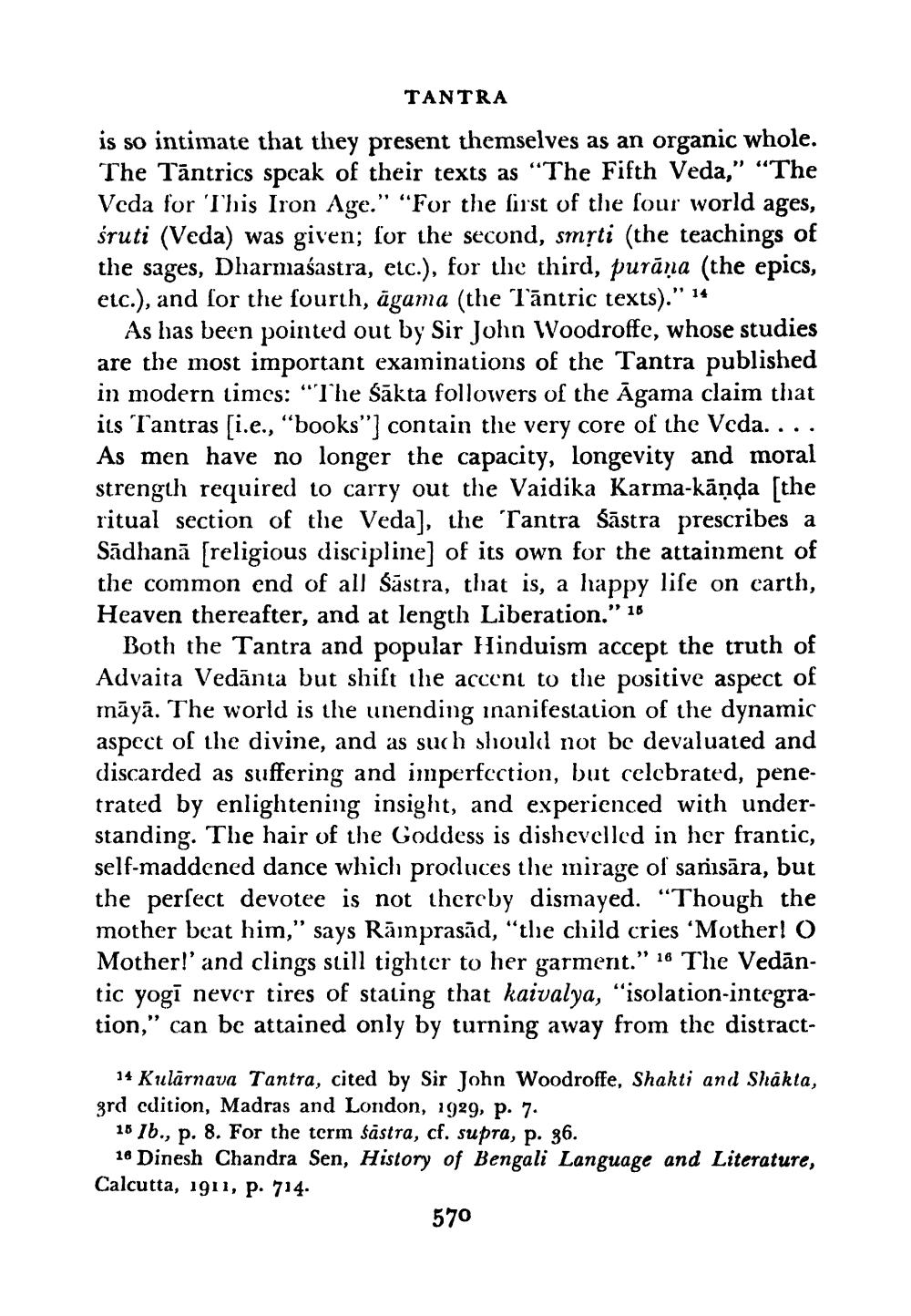________________
TANTRA
is so intimate that they present themselves as an organic whole. The Tāntrics speak of their texts as "The Fifth Veda," "The Vcda for This Iron Age." "For the first of the four world ages, śruti (Veda) was given; for the second, smộti (the teachings of the sages, Dharmasastra, etc.), for the third, purāņa (the epics, etc.), and for the fourth, āgama (the Tāntric texts).” 14
As has been pointed out by Sir John Woodroffe, whose studies are the most important examinations of the Tantra published in modern times: "The Sākta followers of the Agama claim that its Tantras [i.e., "books") contain the very core of the Vcda.... As men have no longer the capacity, longevity and moral strength required to carry out the Vaidika Karma-kānda [the ritual section of the Veda], the Tantra Šāstra prescribes a Sādhană [religious discipline) of its own for the attainment of the common end of all Šāstra, that is, a happy life on earth, Heaven thereafter, and at length Liberation." 16
Both the Tantra and popular Hinduism accept the truth of Advaita Vedānta but shift the accent to the positive aspect of māyā. The world is the unending inanifestation of the dynamic aspect of the divine, and as such should not be devaluated and discarded as suffering and imperfection, but celebrated, penetrated by enlightening insight, and experienced with understanding. The hair of the Goddess is dishevelled in her frantic, self-maddened dance which produces the mirage of sanısāra, but the perfect devotee is not thereby dismayed. “Though the mother beat him," says Rāinprasãd, "the child cries ‘Mother! O Mother!' and clings still tighter to her garment.” 16 The Vedāntic yogi never tires of stating that kaivalya, “isolation-integration,” can be attained only by turning away from the distract
14 Kulārnava Tantra, cited by Sir John Woodroffe, Shakti and Shâkla, 3rd cdition, Madras and London, 1929, p. 7.
18 1b., p. 8. For the term sastra, cf. supra, p. 36.
18 Dinesh Chandra Sen, History of Bengali Language and Literature, Calcutta, 1911, p. 714.
570




